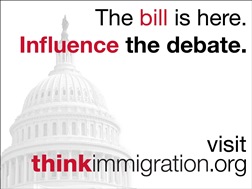The IPC was cited in an article discussing Florida Senator Marco Rubio's attempts to promote the...
Understanding Subject Codes |
Understanding Subject Codes
Training and internship programs are categorized by descriptions found in the Code of Instructional Programs published by the U.S. Department of Education. Descriptions are organized by academic area and each description is assigned a subject code, a unique, six digit identifying number. J-1 sponsors must match the training or internship described on form DS-7002 to one of the subject codes. The code is used in SEVIS to identify the field of training and appears on form DS-2019.
Subject codes are important for two reasons. First, it is important to understand that J-1 sponsors are designated by the US Department of State to offer programs in specific occupational areas; most sponsors are not designated to sponsor all types of trainings/internships. Subject codes organize and describe occupations, indicating to sponsors what types of trainings or internships they are able to sponsor. The descriptions included with each subject code can also offer excellent guidance to those creating a training plan for new programs.
Second, some J-1 participants will be subject to the two-year home residency requirement, 212(e). These include all participants who have received government funds in support of all or part of their J-1 program, and participants who are identified as having skills in demand in the home country. These skills are negotiated by the US Department of State and foreign ministries around the world and are summarized on the Exchange Visitor Skills List. In determining who is subject to 212(e) under the skills list, the subject code on the DS-2019 is matched to the general occupational category headings contained in the skills list.
What happens if a training description does not match a subject code description? The J-1 sponsor will chose the closest subject code and then enter a comment into SEVIS modifying the subject description. This comment will be truncated on the DS-2019. We encourage participants and their attorneys to examine the DS-2019 closely before the visa appointment at the US Consulate. Understanding the subject code can both improve the chances of being granted the J-1 visa and avoid future misunderstandings on the issue of 212(e).
U.S. Immigration Guide
Read our guide to how the United States immigration system works, and our resource page on the problems with it, as well as the possible solutions.




